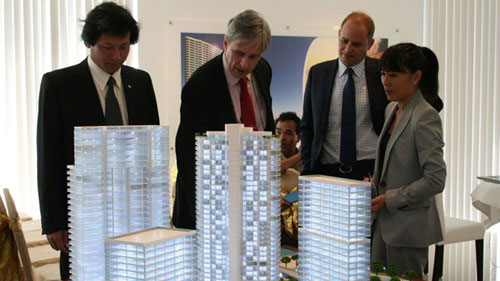The amended law, for the first time ever, gives OVs and other foreigners, similar rights to Vietnamese citizens as it relates to the ownership of property.
The changes in the law were intended to prop up the ailing real estate market of recent times.
However, most experts suggest that OVs and foreigners won’t be rushing out to buy real estate any time soon due to the lack of official regulations or other guidance covering the changes in the law.
“A policy to allow foreign individuals and other entities to own real estate in Vietnam is an active step in the right direction to revive the stagnant real estate market,” said Mai Yayongyia, a graduate student at the National Economics University (NEU).
Mai said as of July 1 – OVs, foreign individuals, and other foreign entities are permitted to purchase, hire, receive, give, inherit or otherwise hold an ownership interest of up to 30% of a social housing unit such as a flat, apartment, or condominium complex.
 |
The policy might stimulate the property market in the long term, said Richarch Leech, CBRE Vietnam managing director.
However, it won’t have any immediate effect as foreign investors carefully follow the market and they will just hold back, observe and only invest when the market actually rebounds.
Most foreigners will just take a wait and see attitude as it is the most prudent course of action in the absence of official guidance, Leech underscored.
Nguyen Hoai An, CBRE Vietnam Vice Director , said businesspeople invest in the real estate sector with the aim of flipping the properties or in other words, purchasing them and reselling at a higher price within a short period of time.
In Vietnam, there are two main types of real estate investments – residential real estate (including houses, flats or social housing units) and commercial real estate.
The simple fact is that no one should be betting on either of these markets to be booming anytime in the near future, An said.